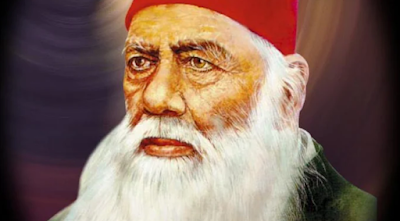Allama Iqbal

**Allama Iqbal: The Visionary Poet and Philosopher** **Introduction** Allama Muhammad Iqbal, known as the "Spiritual Father of Pakistan," is one of the most influential figures in modern South Asian history. His poetry and philosophy have left an indelible mark on the intellectual and political landscape of the region. Born on November 9, 1877, in Sialkot, British India (now Pakistan), Iqbal’s contributions span across literature, philosophy, and political thought. His life and work remain a source of inspiration and reflection for scholars, poets, and politicians alike. **Early Life and Education** Iqbal’s early education in Sialkot laid the foundation for his future intellectual pursuits. He studied at Government College, Lahore, where he was exposed to classical literature and philosophy. His quest for knowledge led him to Europe, where he pursued higher studies in philosophy. Iqbal earned his doctorate from the University of Munich, Germany, with a thesis on the developm...

